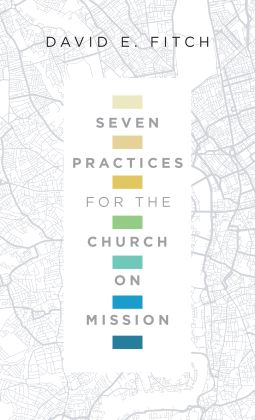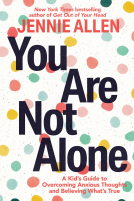
Seven Practices for the Church on Mission
by David E. Fitch
This title was previously available on NetGalley and is now archived.
Send NetGalley books directly to your Kindle or Kindle app
1
To read on a Kindle or Kindle app, please add kindle@netgalley.com as an approved email address to receive files in your Amazon account. Click here for step-by-step instructions.
2
Also find your Kindle email address within your Amazon account, and enter it here.
Pub Date Mar 06 2018 | Archive Date Mar 06 2018
InterVarsity Press | IVP
Talking about this book? Use #SevenPracticesForTheChurchOnMission #NetGalley. More hashtag tips!
Description
Jesus gave his followers seven key practices:
- The Lord's Supper
- Reconciliation
- Proclaiming the gospel
- Being with the "least of these"
- Being with children
- Fivefold ministry gifting
- Kingdom prayer
When we practice these disciplines, God becomes faithfully present to us, and we in turn become God's faithful presence to the world. Pastor and professor David Fitch shows how these seven practices can revolutionize the church's presence in our neighborhoods, transform our way of life in the world, and advance the kingdom.
Our communities can be changed when they see us practicing our faith. Go and do.
Available Editions
| EDITION | Other Format |
| ISBN | 9780830841424 |
| PRICE | $18.99 (USD) |
Average rating from 4 members
Featured Reviews
 JT T, Reviewer
JT T, Reviewer
As a pastor, you have many challenges coming at you. We talk about outreach. We talk about discipleship. We talk about worship styles. We talk about student ministry. We talk about this or that and it gets a bit overwhelming to be the church to all people. One of the areas that I have gotten away from though is how to be the church to the broken and chaotic world that we live in. We constantly have to deal with a balance of what is happening inside the church walls and the people we encounter who may never step into the church walls and thus, this book delivers on that challenge. I was pleased about this resource. Very pleased. How are we the church to our community? What does that look like? How can we implement these plans into action? Well, this books helps deliver on those questions and much more. I was blessed to have read this and it even gives me more confidence in how to push a church to think of both its members and those who are lost from Jesus. Great stuff.
 Reviewer 331858
Reviewer 331858
In "Seven Practices for the Church on Mission," David Fitch shares practices for forming healthy (surprise!) missional churches. These practices include partaking in communion, social-justice focused ministries, kingdom-centered prayer, spending time with children, etc. None of these practices is new, and in a sense, Fitch does little more than remind readers of what the church has always done when it is at its best. But in a time when the church seems to be losing its way, these are important reminders.
 Conrade Y, Reviewer
Conrade Y, Reviewer
Is there a relationship between Church and Mission? Many had said that the primary purpose of the Church is to exist for the sake of her non-members. Put it another way, she must be missional in all of her activities. The moment the Church becomes inward-looking, it is the beginning of the end. What does it mean to live for the sake of others? In one word: Mission. In fact, for author David Fitch, there are specifically seven ways to do just that. These seven practices are:
Being shaped for mission through the practice of Holy Communion
Being reconciled to one another is a key message of unity in a world of division and disunity
Proclaiming the Gospel means we first know what the gospel is and let the gospel speak through us in word, thought, and deed.
Being with the 'least of these' is about being Christ to the people in need.
Being with children is about not paying lip-service to the importance of children in our lives but to involve them in our lives and decision making.
Five-Fold Gifting of Apostles; Prophets; Evangelists; Pastors and Teachers; that put giftings above hierarchy. It is a powerful reminder of what it means to let the Bible (not the world) to show us the way to lead.
Kingdom Prayer as foundation for all other practices.
Based on his recent book, Faithful Presence, which lists the seven disciplines that prepare the Church for mission, this book summarizes the idea of eating, praying, and reconciling the same seven practices as a way of life. In other words, this is a "pocket version" of "Faithful Presence." Though it has been simplified, it is hoped that the idea of mission remains the same, perhaps even emphasized.
It all begins with Christ at the Lord's Table. Without a personal experience with God, how could we share the gospel with passion? Without receiving Christ's passion for the world, how could we speak with compassion to others? This is an all important step in the preparation of the heart for mission.Learning to be present for others requires us to learn the presence of God among us. We from how Christ hosted us at the table and in turn we learn to host tables for others. Such a table and the gathering around tables extend the grace of God outward. We live in a world where the pervasive reach of electronics have made people out of reach physically. At dinner time, it is common to see family members disconnected from one another while connected to their digital screens. Practicing the presence of God leads to the practicing the presence of people. Being reconciled is about learning how to bring reconciliation in the world by first being reconciled with God and our fellow believers. What better witness to the world than being a united body of Christ! Proclaiming the gospel also includes ourselves hearing the gospel clearly. Without this clarity, our proclamation would be muffled. Fitch leaves the two biggest practices to the very end. Let me give some of my thoughts about this book.
Three Thoughts
First, if something is important enough, repeat it. Those of us who have read Fitch's earlier book, "Faithful Presence" might be tempted to bypass this book as some condensed version of the larger first volume. Well do so at your own risk. For this book hones in the key points more sharply. Things that are important will need to be highlighted. Whether using headlines or frequent reminders, anything that is worth repeating ought to be repeated. In the Bible, repetition is an art. The story of God delivering Israel from Egypt; the promises and the covenants; the love of God; the warnings of God; and so on, have been repeated throughout both testaments. Whether it is faith, goodness, mercy, justice, or love, many of these principles hold timeless truths which are applicable then and now. A key theme in the Bible is mission, something that the author of this book is also passionate about.
Second, of all the practices mentioned, it is interesting that Fitch puts the foundational practice, kingdom prayer, at the very end. It is conventional wisdom to put what is most essential at the front of the page and then reiterate its importance at the conclusion. I can think of two reasons why Fitch chose to put this crucial practice at the end. The first reason is about letting the dust of anxiety settle before pulling the trigger. As Fitch begins chapter seven, he writes with deep awareness of believers in a modern anxious world: "Anxiety is the air we breathe in the Western economies. Most people live isolated, vulnerable lives, and so we strive as individuals to secure our existence in every way. We live under the delusion that we are in control of our lives." In picking up this book, people might be expecting for some quick and easy steps to putting something into practice. They learn from the past the importance of prayer. So they pray quickly before rushing to the nuts and bolts of any project. Prayer in haste does not really allow the heart to settle. Perhaps, as readers go through each chapter, they would come to a gentle realization that without God, these practices are nothing. Having the kingdom prayer at the end is a perfect opportunity for readers to cover everything that has been said or planned in prayer. The other reason is to realize that such practices are likened to entering into spiritual warfare. Without prayer, we are sitting ducks for the enemy to shoot at.
Third, I appreciate the chapter about being with children and the reminder that we ought to include them as much as we can. Many Church activities do not generally include children. We may have children's programs or children's Sunday School. What about the rest of the Church programs? Even during the main services, we tend to exclude children from participation. What if we could incorporate children into our regular Church stuff? I really like what Fitch writes: "The sacrament of being with children is a social sacrament that brings together the community in its withness with the child. This is what we have lost. This is what we must recover for the mission of God in the world." Withness and witness. That's cool. It is about togetherness, which is essentially what Church is about. It is also not simply about children being in adult programs. It is about adults learning from children what it means to be open to faith and having a childlike wonder at the gospel.
These seven practices are there for us to learn from. We may not agree with every one of them. Neither do we have to for in the reading of any book, as long as we could take home at least one point, it would have been worth every penny. Fitch provides us with seven. For those of us with childlike wonder and openness, we would definitely take home more than one.
David Fitch is B. R. Lindner Chair of Evangelical Theology at Northern Seminary Chicago, IL. He's married to Rae Ann and they have one child, a son Max. He's pastored and participated in many church plants including Life on the Vine Christian Community a missional church in the Northwest Suburbs of Chicago of the Christian and Missionary Alliance. Most recently he and his family have joined Peace of Christ Church, Westmont, a church planted from Life on the Vine.
Rating: 4.5 stars of 5.
conrade
This book has been provided courtesy of Inter-Varsity Press and NetGalley without requiring a positive review. All opinions offered above are mine unless otherwise stated or implied.
Readers who liked this book also liked:
Harold Earls, IV; Rachel Earls
Biographies & Memoirs, Parenting, Families, Relationships









